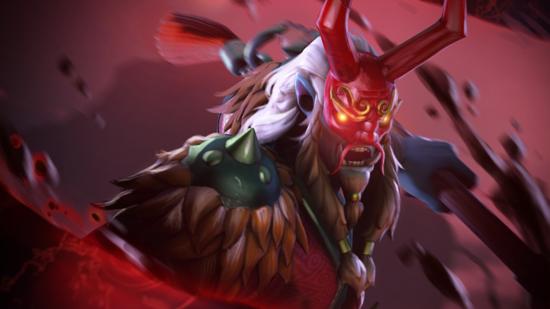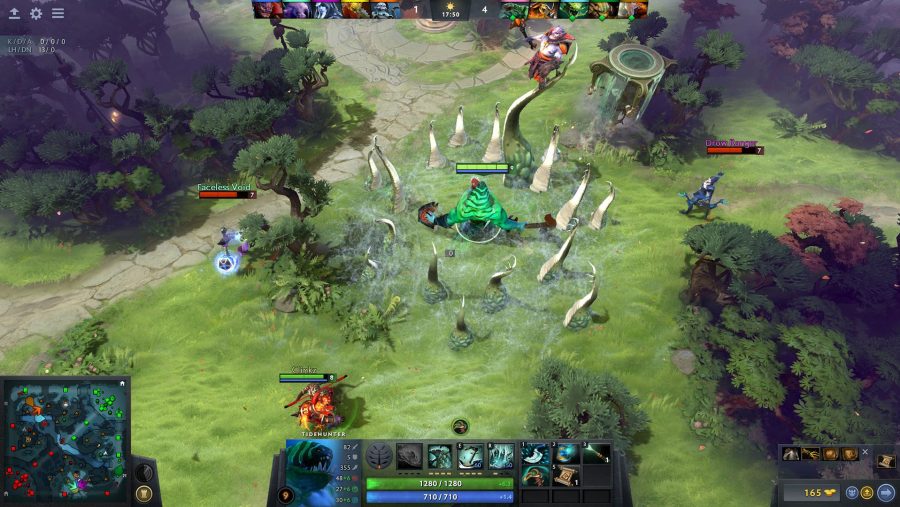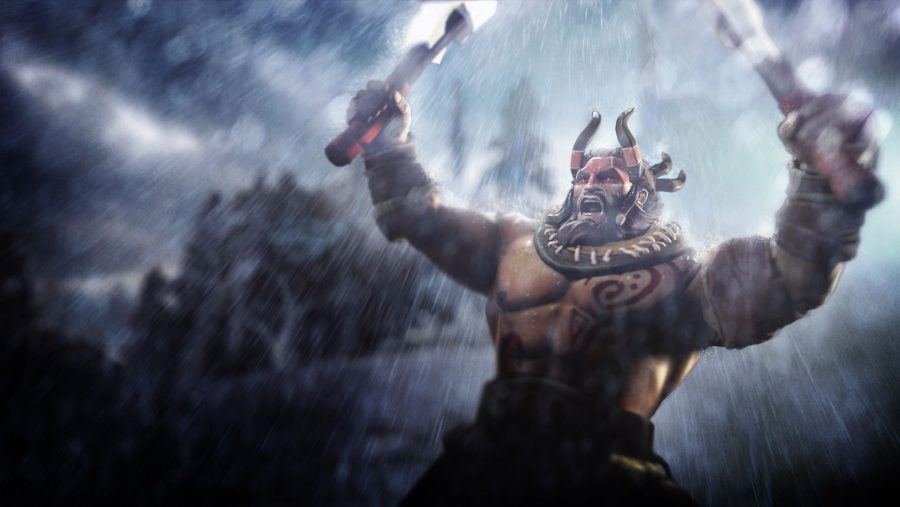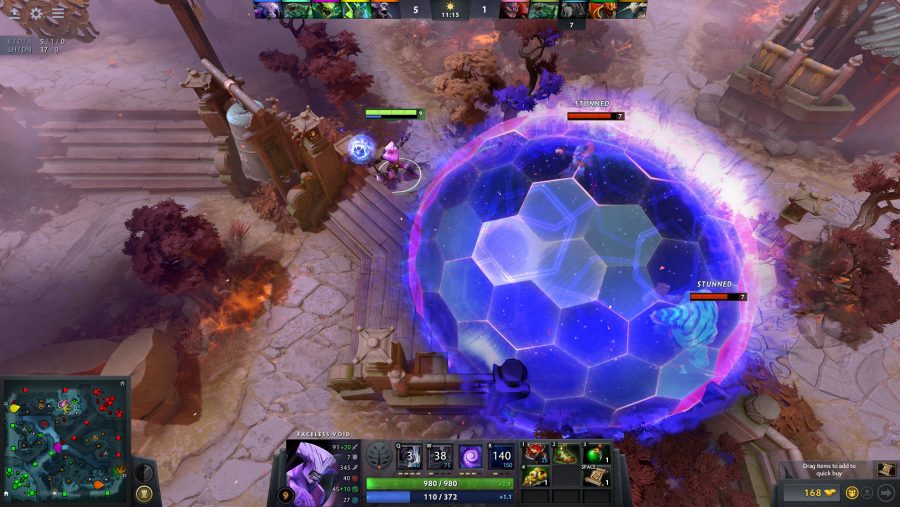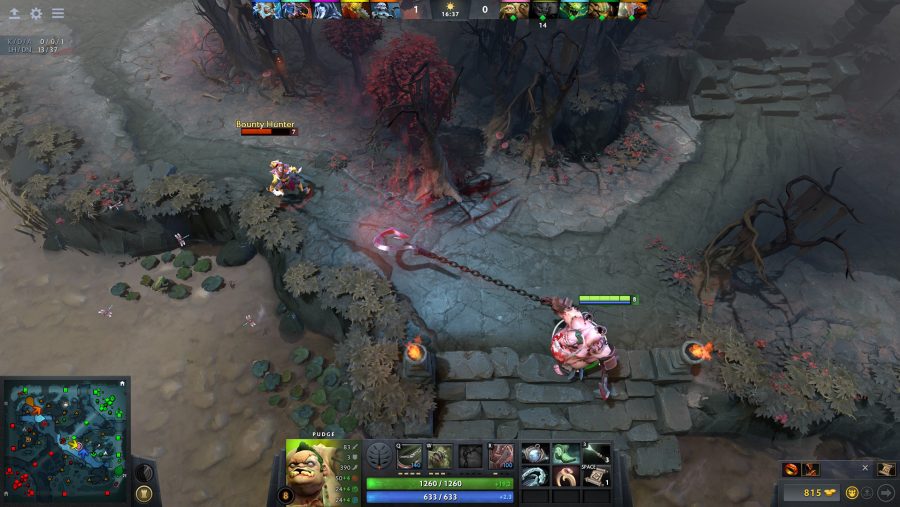April 15, 2021 This piece was originally published back in August 2019, but it’s still a great read a couple of years later. We’ve hopped back in to make sure Cohen’s stats are up to date, but that’s pretty much it.
Michael Cohen sits on a bus to the Grand Canyon, but rather than enjoying the scrolling scenic views – a sun-bleached road lined with Joshua trees – he’s hunkered down, working on a laptop. It’s not much use, though, as with limited internet connectivity Cohen cannot accomplish everything he wants. So, once he returns from his vacation, crossing the threshold into his home, he immediately drops his bags to put 12 more hours of work into his project.
It’s December 2015 and Zet, the Arc Warden, has just been added to Dota 2 in the Balance of Power update. Cohen, better known by his handle Torte de Lini, updates and maintains in-game guides to help players build and play each of Dota 2’s 121 heroes. Just 31 hours after the Arc Warden patch dropped he had already made 350 updates across all of his guides.
Dota 2 is a game of enormous complexity, and navigating its many heroes and items can be overwhelming. Cohen’s work is a lighthouse for players – especially beginners – who might otherwise become lost at sea.
His guides boast over 450 million subscribers. And while he put the project on hiatus for a time, it was revived in early 2019. Brief pause notwithstanding, the chances are that if you have ever played an unfamiliar hero in the game, you’ve pulled up a guide, seen Cohen’s name, and benefited from his tireless efforts.
He does it all for one simple reason: to prove a point to himself.
“People see it as me doing a charitable service but it was always for myself,” he tells us. “To prove I could do something no matter how big or small. I was always a failure in high school and never really done anything worthwhile.”
Cohen says he originally started creating guides after spending several years of his post-college life working on a volunteer basis in the esports industry. For him, making guides was a way of becoming part of a community – a way in which he could be judged purely on the merits of his hard work, not by his connections or how much money he made.
“The guides are an essential part of my pride and sense of worth,” he explains. “When I was younger, I made the mistake of trusting my insecurities and evaluating my self-worth based on the acceptance and interest of others. But at the same time, this mistake has led me to so many opportunities, friends, and accomplishments”
Cohen has been playing MOBAs since 2005, including Dota 2’s predecessor, DotA Allstars, where he benefited from the guides others had made.
“My brother and I would routinely play different custom games and modes in Warcraft III over the years as our parents were getting divorced,” he recalls. “Videogames helped us a lot with coping with this separation, as well as our eventual move from the United States to Quebec, Canada. Among the many custom games like Hero Line Wars, Pimp my Peon, and Hell vs. Heaven, DotA Allstars was one we had a lot of fun playing.”
In February 2013, he began the Standard Hero Builds Project and pored over details and statistics for hours, creating guides that Dota 2 players would frequently come to rely upon.
Where some guide makers update the their work in the face of new patches that bring upheaval to the established understanding of many heroes – as in Dota 2 7.20, which saw nearly a third of the game’s heroes graced with ability reworks – Cohen’s process is far more iterative.
Need a hand? Here are the best Dota 2 heroes for beginners
“So the strategy is to push an immediate update within the first 48 hours and then subsequently update them across the coming weeks,” he says. “Otherwise players would subscribe to an outdated build and keep using it without realising that they’re being misinformed.
“On your end, for example, you see me make 400 updates for Patch 6.84 (April 29, 2019), but in reality, I made approximately 1,500 changes across weeks before patch 6.85 came. This is because I’m making adjustments and changes to the builds as the patch develops and then a new patch is released. For all the changes you do see or that I have marked down, there are many changes or reviews I make that lead to no changes or simply text revisions – this adds a lot to the workload and hours.”
He notes that the difference between a player in a lower skill bracket and an expert is one of timing and execution, but what they want to achieve with their heroes remains the same, allowing for standardised builds to exist that apply to everyone.
Cohen, who describes himself as a very average player, compensates for any lack of knowledge he might have by incorporating feedback, information gleaned from professional matches, and statistics from websites like OpenDota into his guides.
The long hours of doing work he prides himself on are not without serious drawbacks. Putting so much time and mental energy into Dota 2 over such a long period has slightly robbed the game of its original joy for Cohen.
The constant fraying churn of updates is another issue he struggles with. For instance, Valve’s switch from sporadic patches to small bi-weekly ones in 2018 proved draining. While the number of changes made over a lengthy period of time remained the same, the more frequent nature of the patches required Cohen’s attention more often.
“Being required to be available at my computer every two weeks to make 100 or so changes per patch and regularly review them as the game constantly changed burned me out,” Cohen recalls.
Despite the long hours sacrificed – sometimes from his career, weekends, mornings and evenings, even vacations – he still thinks the whole endeavour has been worth undertaking.
“Appreciation has led me to meet all kinds of great and admirable people who also use my guides,” he says. “People who use them for their machine-learning AI, people who have won Dota 2 World Championships, game developers and their families who play the game together as a team.
“There’s no greater feeling than meeting someone new who already knows and likes you because of what you do – it’s such a relief and such a joy for me through and through.”
